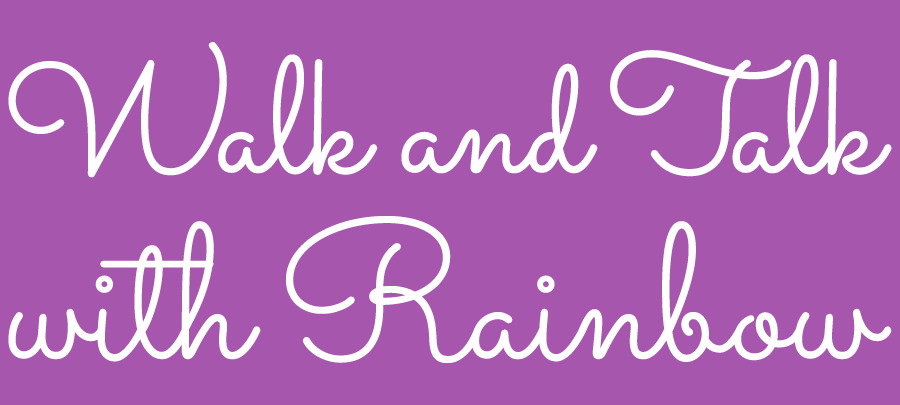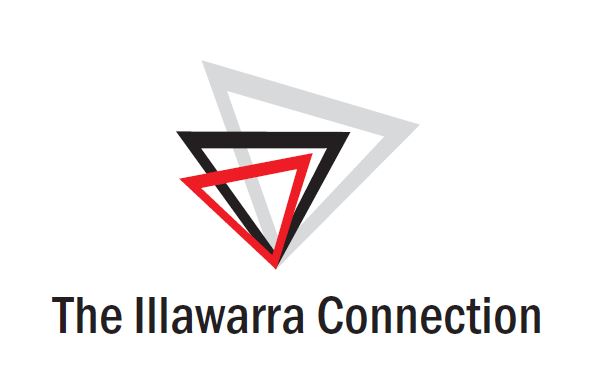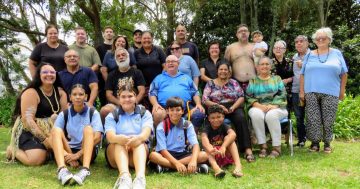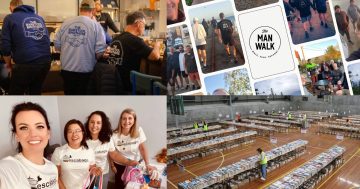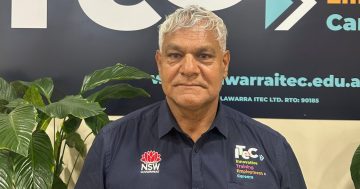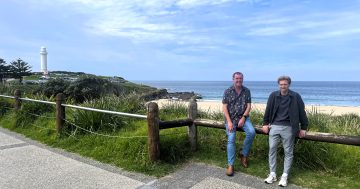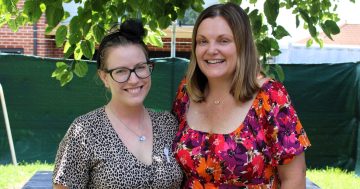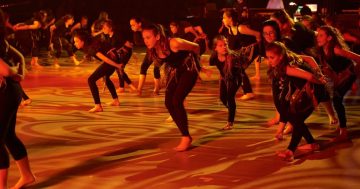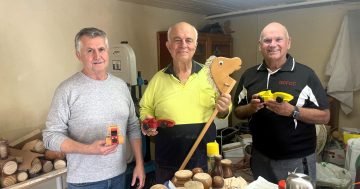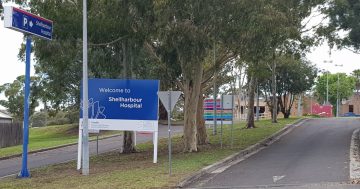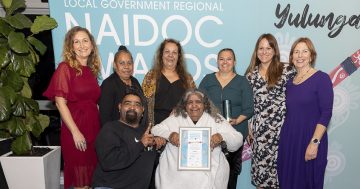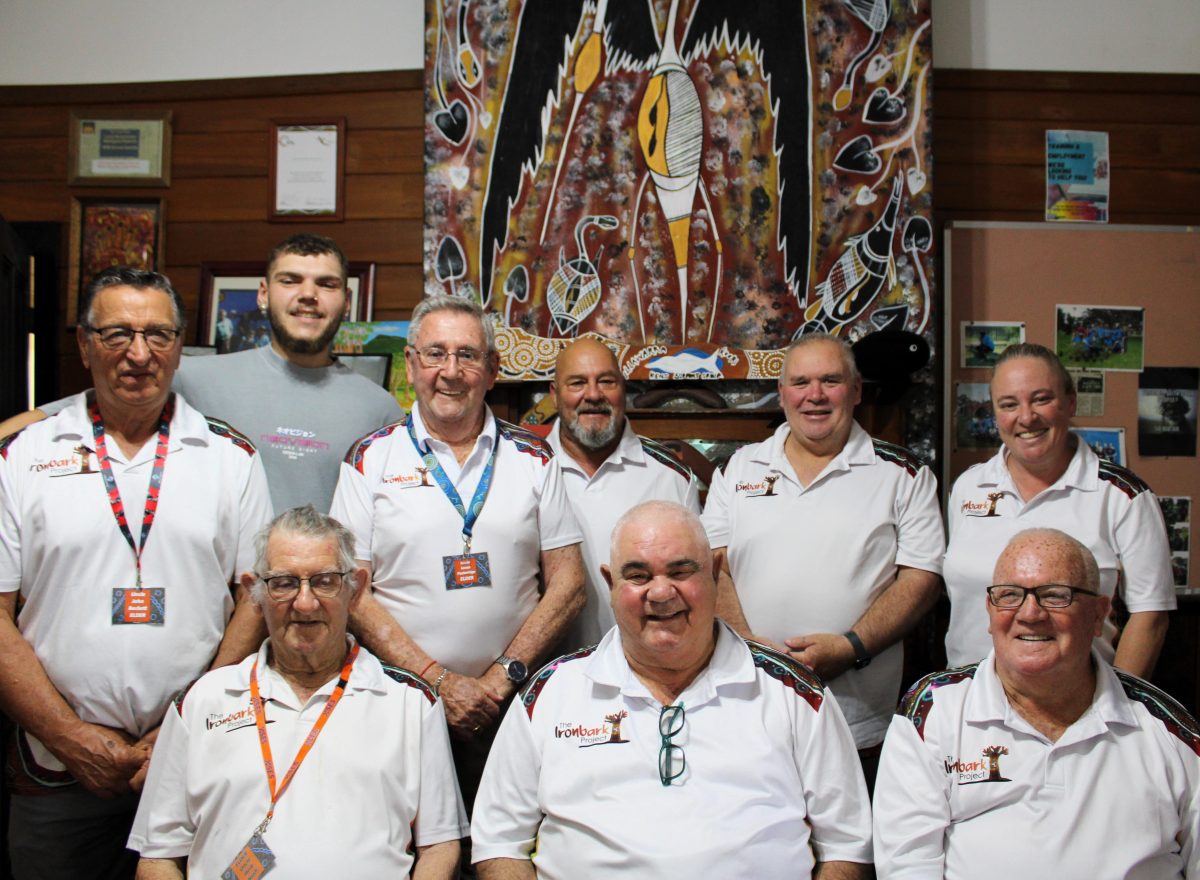
The Illawarra Koori Men’s Support Group has been supporting locals for 20 years. Photo: Keeli Royle.
When local Elder Uncle Gee first decided to start a support group for Aboriginal men in the Illawarra, some people said the initiative would barely last a month. Now, 20 years later, the group is going strong and has expanded to offer more culturally safe spaces and programs for those who need them most.
Illawarra Koori Men’s Support Group began in 2003 with the simple goal of being a place for people to open up and start a conversation.
“When we were young we didn’t have anywhere we could go and talk to one another,” Uncle Gee said. “In the old days, the only place was the pub and all people wanted to do there was drink.”
“We had a few meetings with the community and thought we’d start a men’s group.”
It started with between 30 and 40 members in Kenny Street, Wollongong, then they had to brave the cold in a Cringila park through winters before finding a dedicated space at Albion Park Rail.
But despite the struggles with location and funding for services, the group continued to be driven by purpose.
“The reason I want to keep this group going is because when you look around and read the papers there’s that many Aboriginal fellas that are committing suicide, they’ve got no one they can talk to and we need to try and stop that,” Uncle Gee said.
They became the foundation of the Gawura Aboriginal Corporation, which now includes a women’s support group and other programs such as Brothers Against Domestic Violence, behavioural change program ChangeV, Illawarra Aboriginal Men’s Physical Health And Training (IAMPHAT) and Koori Youth Aboriginal Kultcha Konnection (KYAKK).
Connecting with Aboriginal youth is crucial for the group to ensure their sense of belonging and exposure to positive cultural influences.
“Many of them don’t have fathers in the house or they have fathers and don’t see them for three or four years at a time so we really need to help them out,” Uncle Gee said. “They’re looking for a father figure, someone they can talk to and help them back on track.”
Many men from the group said that connection with culture is vital, and spoke of the mutual struggles and continued racism experienced by First Nations people.
“No matter what you do, you go out into non-Indigenous communities and straight away they put a sign on you that he’s an Aboriginal male, he’s useless, he won’t work, he drinks all the time, he smokes, and we get targeted and branded,” Uncle Gee said.
“I look non-Indigenous so even with the group I have coffee with, the derogatory things that come out, and you’re hearing this from people who are [from an] ethnic background if not migrants themselves,” Uncle Lance Puckeridge said.
“Getting on the school bus, I was told to tell them you’re Indian or Italian because they get treated better,” Uncle John Beckett said. “And it’s still that way today actually.”
While some of these men involved grew up experiencing first-hand discrimination, for others it was the absence or denial of their heritage that was so painful.
“My mother was taken and adopted out so she wasn’t allowed to speak about anything, so I never knew until about five or six years ago,” Geoff Smith said. “Now I’m just trying to find some culture and I’m trying to learn.”
“My great-grandmother had to denounce her Aboriginality to marry a white man so she could walk on the same side of the street as him and go wherever he went, but she had to have her paper on her all of the time,” Greg Gibb said. “So it was never spoken about in our family.”
“Before I came to this group I was so depressed because I just didn’t know anything and then this group had all these Elders to talk to and it made such a difference.”
The portrayal of indigenous people in media, the removal of Welcome to Country in certain areas, the aftermath of the Voice referendum and even just their treatment in public continuously impact many in the community. Still, through both individual and universal experiences, these men are there to support each other.
“Each bloke contributes because we’re all so different,” Uncle Lance said.
“As long as we all stick together we’re pretty good,” Uncle Gee said.
But they need the next generation to step up to ensure that support continues for generations to come.
“I think our main priority is the young ones,” Uncle Brian Green said. “We need to bring some of the young ones in because we’re all getting pretty old and we need some of the younger ones starting up to take over our roles.”
To find out more or to get in touch, visit the Gawura website.




